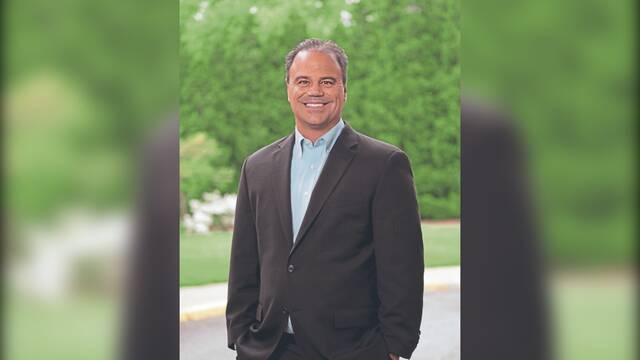The North Allegheny School board during a special meeting Feb. 8 responded to a controversial audit by state Auditor General Timothy DeFoor’s office that said the district used a budgeting loophole to raise taxes in a way that did not need voter approval.
Board members stated that North Allegheny’s budgeting practices were in full compliance with the law, and the DeFoor’s report did not “find non-compliance with law or regulations.”
North Allegheny was one of 12 school districts audited by DeFoor’s office, and the review found that they all raised property taxes during years when they had enough cash on hand to cover expenses. The districts sought and obtained special state exceptions so that they did not have to put the tax hike before voters.
The board voted 5-4 to raise taxes for the 2022-2023 school from 19.1408 mills to 19.740 mills — a year that was outside of DeFoor’s review. School Board member Dr. Vidya Szymkowiak said she cautioned against raising taxes this past June.
She said the board has “the power to levy taxes is an extraordinary one. We must treat this responsibility with the gravity it deserves.”
DeFoor’s audit of NA covered four budget years stretching from July 1, 2017, to June 30, 2021. Board President Libby Blackburn said she was the only current school director who was on the school board at that time, and she said she voted against the tax increases each time.
“We may not have been at the helm of the ship when all of this happened, but we are the people who are responsible for righting this ship,” said board Vice President Marcie Crow.
Superintendent Dr. Melissa Friez was not superintendent during the period covered by DeFoor’s audit.
At issue is how the 12 school districts, including NA, used a 2006 law — Act 1 — while budgeting for upcoming school years. Districts are required to keep annual property tax increases within a so-called “index” that limits what they can levy based on a formula calculated by the state.
If school district officials want to raise taxes above the cap, they must seek approval from voters unless the state grants an exception, which it does if districts need the money to meet pension obligations, pay for special education or to cover payments on previous construction debt and building projects approved by voters.
DeFoor said auditors saw “some startling trends,” in which districts moved money around to make sure a district would always meet the threshold to raise taxes. He called this practice “basically a shell game.”
The auditor general said the districts also had a habit of applying for a referendum exception as a regular budgeting tool, which is not how the law was intended.
NA enacted two tax increases during the audit period — one in 2018-2019 from 18.0011 mills to 18.4557 mills and another in 2019-2020 that raised the millage to 19.1408.
NA received exceptions for those years, notably for funding for special education and for mandated contributions to the Public Schools’ Employee Retirement System, according to Kermit Houser, NA assistant director of finance and treasurer.
Some budgeting decisions were done to maintain a stable bond rating, which helps to lower interest rates when borrowing for large projects, said Houser, who was not in charge of the finance department during the years in question.
The district continued to have a deficit, which stood at almost $1.6 million in 2017-2018 and $3.5 million in 2020-2021, he said.
The district has a substantial balance in funds not assigned for specific purposes, said Houser. The auditor general recommended that NA refrain from applying for referendum exceptions unless the district has utilized unspent committed or assigned funds.
Brendan O’Donnell, a resident of McCandless, told the board that if the district wants to tax him, the money should pay for education, not sit in a “slush fund.”
“Don’t tax me to just sit on money, with tens of millions of dollars in perpetuity,” O’Donnell said.
School board director Paige Hardy assured the public board members are diligent and the auditor general made similar recommendations to all 12 district.
“North Allegheny does not play with the public’s money,” said Hardy, adding all of NA’s budgeting and finances can be located on the district website.
Board Member Michael Weninger said while he doesn’t favor raising taxes, 75% of the budget goes toward salaries, benefits and items that are non-negotiable. That leaves 25% to fund other costs, including transportation, gas and projects.
Board member Elizabeth Warner noted 10% of that 25% goes toward paying off existing debt. She challenged the board to find other efficiencies before raising taxes.
A tax increase is not planned for the 2023-2024 year, according to the preliminary budget presented to the board on Jan. 29. As a result, the district will not apply for exceptions for 2023-2024.
Houser pointed out that the state budget is typically not decided until after the school board adopts its final budget as required by each June 30. So officials have to estimate how much they’ll get from the state.
Janet Sidor, of Franklin Park, told the board she works in financial management and she doesn’t take budgeting lightly. She said it’s important to responsibly create a budget and explain it clearly.
“Just because no one is watching doesn’t make it acceptable,” Sidor said.
NA resident Joanne Resovich lives on a fixed income and said she understands that schools need to raise taxes.
“That means our income never goes up, ever, but everything else does,” Resovich said.
The Feb. 8 presentation is available on the district website at www.northallegheny.org.
The board’s next budget finance committee meeting is April 12, 2023 at 6 p.m., at the Central Administration Offices off Hillvue Lane.








